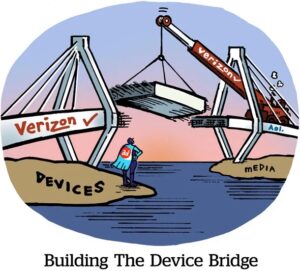How Blockbusters Survive Netflix
The latest Bond flick, “No Time to Die,” and the Marvel movie “Shang-Chi and the Legend of the Ten Rings” kindled hope for cinemas with blockbuster ticket sales. But Hollywood won’t return to pre-pandemic standards. For one thing, only action or horror movie franchises have performed, “particularly when they are offered exclusively and not simultaneously available to stream,” industry consultant David Gross tells The New York Times. Legacy studios can’t judge film releases without the easy benchmarks (box office and DVD sales). The Warner Media movie “The Suicide Squad” had stellar reviews, word-of-mouth and streaming pickup, but was a box-office flop. Did the movie generate HBO Max subscribers or create viewership loyalty that translates to lower churn at higher subscription rates? Those are difficult questions to answer, but are more important than box-office revenue. Disney is testing its model, with a relatively cheap Disney Plus subscription at $80 per year, but a $30 flat charge to watch a blockbuster movie a few months before it’s available on the app. Warner Media reportedly delayed committing to fund a sequel of its big release, “Dune,” until it sees how the film performs on HBO Max.
The Business of News
Many news editors and reporters have left the newsroom to start their own independent news or newsletter subscription businesses. Substack is an important player in the space, for instance, alongside podcast distribution networks. Earlier this year, The New York Times consolidated some of its opinion writers’ newsletters into its digital subscription. (In other words, they started charging for them.) The Atlantic is pursuing a similar idea, but instead of combining its own writers’ newsletters, the publisher wants reporters with outside subscription businesses, Vox reports. The Atlantic would offer a base pay and incentive goals, and would include a digital subscription ($50/year) for any newsletter reader who didn’t already subscribe to the publication. It’s a great deal for readers, unless they don’t want the Atlantic, which would be snuck in Trojan Horse-style with their Substack or separate newsletter subscription. The newsletter writers would still own their email lists – but the Atlantic would own a mirror version as well, since the readers are all freebie Atlantic subscribers, too.
When the Price is Right?
Google is expanding its shopping and shopper marketing features. But as it does, the company must balance new dynamics for a search engine. For web searches, for example, Google doesn’t scrape ecommerce or product pages for pricing indicators to factor into search results, Google senior webmaster trends analyst John Mueller said at a recent office-hours virtual event, Search Engine Journal reports. That’s different from Amazon, where product pricing is integral to whether and how an item ends up in search results. Google shopping results may take price and other common ecommerce sales factors into account (such as whether an item is in stock). “So, from a web search point of view, we don’t take price into account. From a product search point of view it’s possible,” he said. “The tricky part, I think, as an SEO, is these different aspects of search are often combined in one search results page.”
But Wait, There’s More!
Epic Games, maker of Fortnite, may launch a studio entertainment group. [The Information]
Google’s apps will (finally) embrace iOS design conventions on iOS. [Six Colors]
DRMetrix acquired by iSpot to expand DTC TV ad capabilities. [release]
Fourteen power players determining the future of online advertising. [Business Insider]
Walmart and Netflix team up with a new online Retail Hub for content merch. [release]
The disconnect between what shoppers want and what retailers believe they want. [The Drum]
Advertisers will only boycott Facebook in spirit. [Campaign]
Facebook and Instagram will focus on live shopping experiences this holiday season. [Adweek]
You’re Hired
Response Media expands client and development teams. [release]













